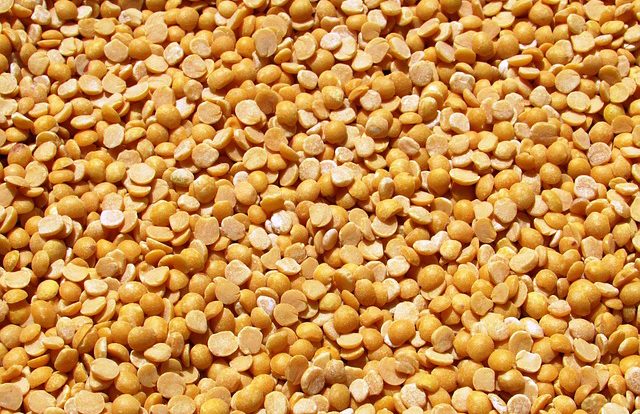January 19, 2017
In a move that reflects the growth potential for plant-based proteins, French specialty ingredient supplier, Roquette, is investing C$400 million (US$300 million) – the largest pea protein investment made in the food sector to date, to build the world’s largest pea processing facility in Canada.
“This is one of the largest private sector investments in the history of Manitoba,” said Brian Pallister, Premier of Manitoba, at a recent news conference reports the Winnipeg Free Press.
Construction of the facility, which will be located in Portage la Prairie, Manitoba, is scheduled to begin in the second half of this year. Once completed in 2019, the plant is expected to address the challenge of growing demand for plant-based proteins across North America and around the world by supplying pea protein to manufacturers of vegetarian foods and high-protein sport nutrition products.
“We’re very proud and excited to make this announcement,” Jean-Marc Gilson, CEO of Roquette, told FoodNavigator-USA. “Consumers are interested in more sustainable sources of protein, and we’re seeing demand in every category from snacks, bars and sports nutrition products to weight management, senior and clinical nutrition products, beverages and meat analogs.”
Strategic Location, Strategic Timing
The choice to build this landmark facility in Canada is highly strategic. Pulse Canada states that the country has built pulse production into a multi-billion dollar industry, becoming the world’s largest producer of peas, accounting for approximately 30 percent of total global production. In addition, Manitoba’s high level of available hydroelectric power will help to offset the cost of operation.
Canada’s production of the eight major pulses and specialty crops – peas, lentils, beans, chickpeas, sunflowers, canary seeds, mustard, and buckwheat increased from one million tons at the beginning of the 1990s to 5.9 million tons in 2015 – reflecting growth of more than 500 percent across 25 years. Over the past two decades, Canada’s role in the trade of these crops has also grown, with the country supplying more than 150 foreign markets and accounting for 55 percent of the global trade in peas and 50 percent of the global trade in lentils. Furthermore, by 2015, the country exported six million tons of pulses carrying a value of $4.2 billion, states Pulse Canada.
Alternative protein sources have been increasingly on the radar of both consumers and investors. Global protein consumption is expected to climb at a CAGR of 1.7 percent, reaching 943 million tons by 2054, according to Lux Research. Over this same time period, alternative plant-based protein sources are forecast to command up to a third of the protein market as they fill the void created by slowing growth in meat and seafood production. Of these plant-based alternative protein sources, peas offer an additional benefit and appeal to consumers due to the fact that, unlike soy, they are not one of the major allergens and are not genetically modified.
“Consumer preference, concerns over the planet’s ability to produce sufficient meat, impact of livestock agriculture on the environment, and mounting scientific advances are driving the changing protein demand,” said Camilla Stice, Lux Research Analyst.
Reflected in Investments
These consumer trends in both consumption and concern for ecological sustainability have been reflected in the growing acknowledgment of plant-based protein companies by investors.
In October 2016, New York-based pea protein snack chip startup, Proformance Foods, raised $1.2 million in a round led by “one of the 10 largest CPG companies in the world.” And earlier in the year, Google Ventures led a $30 million Series B for Ripple Foods, producer of a pea-based milk alternative that provides eight times the protein of almond or rice-based dairy alternatives and half the sugar content of cow’s milk. Other investors involved in the round included Prelude Ventures, Tao Capital Partners, Tim Koogle, Khosla Ventures, S2G, Collaborative Fund, Blueberry Ventures, Seth Goldman, and Radicle Impact.
“We have bought a very large piece of land and we think this is the beginning of a much larger story,” Gilson told FoodNavigator. “You do your homework before spending this amount of money and we are convinced that this is a sustainable trend. There’s a huge growth opportunity in vegetable proteins, more sustainable sources of protein, and there is a tremendous need right now for high-quality pea protein, because demand absolutely outstrips supply.”
-Lynda Kiernan
Lynda Kiernan is Editor with GAI Media and daily contributor to GAI News. If you would like to submit a contribution for consideration please contact Ms. Kiernan at lkiernan@globalaginvesting.com

Let GAI News inform your engagement in the agriculture sector.
GAI News provides crucial and timely news and insight to help you stay ahead of critical agricultural trends through free delivery of two weekly newsletters, Ag Investing Weekly and AgTech Intel.




